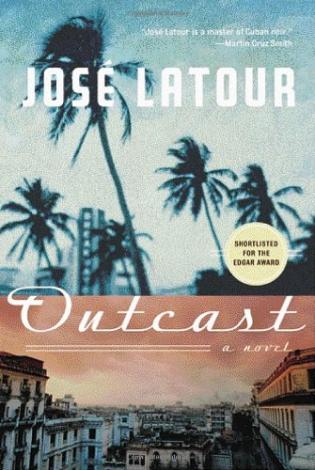
Elliot Steil, born of a Cuban mother to a long-vanished American father, may not love his life in Havana (as an English teacher earning the equivalent of $2 a month, who would?), but he loves the city itself for its tattered elegance and the warmth of its people. His response to the communist political philosophy that underpins and overlies Cuba is one of generally resigned apathy. The arrival of Dan Gastler, who claims to be an old friend of Elliot's father, catapults Elliot from apathy to action when Gastler offers the teacher a chance to escape to the U.S. on his sailboat.
But Gastler shoves Elliot overboard mid-journey, leaving him to die in the Florida Straits. The serendipitous arrival of a family of Cuban rafters prevents him from drowning, but does little to assuage Elliot's baffled fury. The answers come slowly, as the teacher tackles a dual mission: to survive financially and psychologically as a Cuban refugee in Miami, and to uncover the identity and motive of his attacker. The former pulls him gradually into the city's grungy criminal underbelly, and the latter entangles him in a treacherous web of bitter family history and political machinations--with deadly consequences.
Though Latour is no Vladimir Nabokov (his grasp of English, while certainly commendable, doesn't prevent a host of bizarre phrasings from jarring the reader's eye and ear), Outcast is at heart a workmanlike thriller. Its innate straightforwardness, however, is often at odds with Latour's efforts to fancy things up with arbitrary chronological leaps and shifts in narrative perspective, which undermine the novel's pacing and plot. But for readers looking for a glimpse into Cuban American life through a rarely used prism, Outcast will deliver the goods. --Kelly Flynn